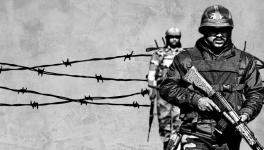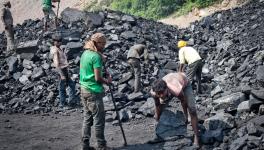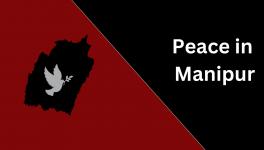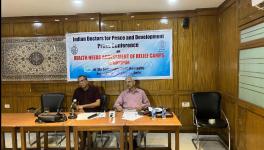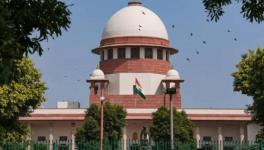Delaying Naga Peace Process Could Prove Counter-Productive
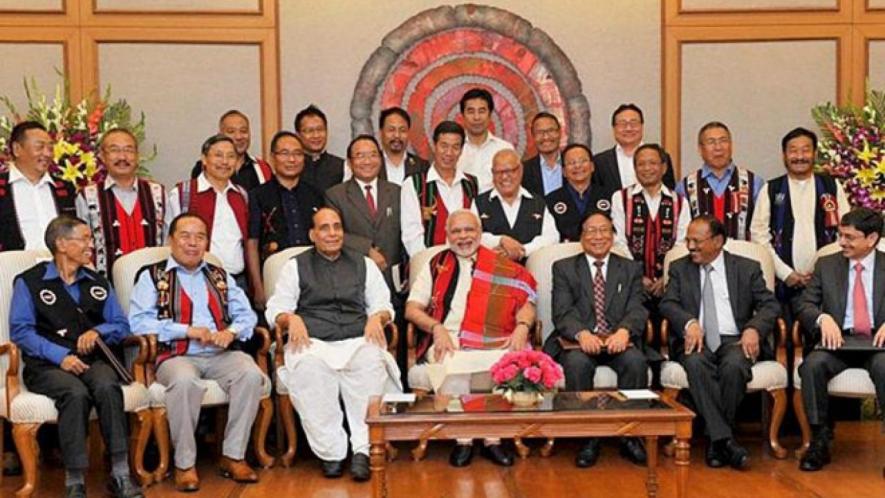
An uncertain situation is brewing in Nagaland over the blocked political negotiations between the Centre and the National Socialist Council of Nagalim (Isak-Muivah) [NSCN(IM)] to find an early solution to the vexed Naga issue.
On the one hand, the state Assembly, in its latest session on August 3, adopted a unanimous resolution calling upon all Naga political groups to “make serious efforts towards unity and reconciliation” to reach an understanding with the Narendra Modi government at the Centre. On the other, on the same day, Nagaland witnessed a largely successful statewide 12-hour general strike called by the NSCN(IM) to protest the Centre’s alleged “delay in fulfilling its commitment” on the peace process arrived at through the Framework Agreement which was signed in the presence of the Prime Minister in Delhi in August 2015.
The two developments, which occurred simultaneously, could be portrayed as a show of strength by both sides – all parties in the state assembly and the “people’s support” enjoyed by the NSCN(IM).
The NSCN(IM) held the 12-hour shutdown to protest the Centre’s alleged silence over the issue for six years since the Framework Agreement was signed on August 3, 2015. The major insurgent group has been holding negotiations with the Centre since 1997, which had culminated in the signing of the Framework Agreement. On the other side, the Working Committee of seven Naga National Political Groups (NNPGs) was holding separate parleys since 2017 and inked a document called the ‘Agreed Position’ in November that year. NNPGs have been saying that they were ready to sign the agreement, while the NSCN(IM) has been insisting on its demand for a separate flag and constitution, which has not been agreed to by the Centre, thus bringing the process to a standstill.
The issue dominated the opening day of the two-day monsoon session of the Nagaland Assembly, which led to the adoption of a five-point resolution urging various Naga political groups to come together and expedite the peace process. It urged the “negotiating parties” of the Indo-Naga political issue, indirectly pointing towards the NSCN(IM), to resume the peace talks with “a positive approach and mutual respect by setting aside pre-conditions”.
The resolution also said that “the constant antagonism against each other, especially in public space and the media, is sending out a wrong message to the masses, considering the fact that we are all pursuing the same aspiration of peace and political solution.” It urged the Naga groups to rise above party affiliations, unite and “make concerted efforts, and listen to the voice of the people for unity and oneness.” The resolution, moved by Chief Minister Neiphiu Rio, was later adopted unanimously by a voice vote.
On the same day, the NSCN(IM) displayed its strength by calling the 12-hour shutdown and came out with a statement thanking owners of shops and business establishments of Nagaland and other Naga inhabited areas for “exhibiting the courage to show solidarity to the Framework Agreement”. The insurgent group also thanked the Naga people and other inhabitants for bearing with the inconveniences during the general strike.
Among the issues at large which have been affecting the peace process, the primary one seems to be the hardline taken by the NSCN(IM) towards it. Though the outfit has been in ceasefire with the Centre for decades, there have been intermittent clashes with the security forces in the meantime.
The Centre’s interlocutor, who signed the 2015 Framework agreement, is now the Nagaland governor, which has created a trust deficit and led to the present stalemate. The NSCN(IM) had earlier accused the interlocutor of deleting a key word from the original 2015 Framework Agreement and sharing the modified version with other Naga groups, including the NNPGs.
The governor has been working on the position that quick peace has to be achieved through a deal. But achieving “quick peace” has been difficult as the NSCN(IM) has been insisting on its primary demands of a flag and a constitution. The Centre has also been alleging that it has been continuing extortions or collecting taxes. This has further justified the ground for a muscular policy on part of the government to deal with the group, and security operations have continued in the region. The Union Home Ministry has also been extending the imposition of the Armed Forces Special Powers Act (AFSPA) in the area every six months.
However, in the present scenario, such security operations could only prove to be futile, as the NSCN(IM) has also shown its military mettle. The government cannot afford the return of insurgency in the Northeastern region. Past experiences have proved that the NSCN(IM) can withstand the so-called muscular policies. At the same time, the group has also sent all the right messages by checking and reducing extortions and other such illegal activities. Also, there seems to be a consensus among the group that peace talks with the government is desirable and beneficial for its larger political objective and inclusion.
The recent unity among various state political parties and groupings has shown that the NSCN(IM) has been facing challenges regarding its ability to represent the entire collective Naga identity, even though it continues to be the largest group championing the Naga nationalist cause.
While security agencies have been aiming at breaking the back of the insurgent group, such actions could be unsustainable as these might end up overturning the decades of talks and the possibility of a deal in the future. Continuation of the peace talks would definitely raise the faint hopes of a solution. However, the sovereign nature of the NSCN(IM)’s demands is unlikely to be heeded by the Centre as one takes lessons from Jammu and Kashmir.
At the root of Naga nationalism is the demand for a separate representation of their identity which could be resolved through mechanisms like an autonomous territorial council in the Naga-dominated areas with more powers. Delaying the peace process in the hope that it would weaken the NSCN(IM) or alienate it from the Naga people, is not a solution and could be counter-productive.
(Amitabha Roychowdhury was deputy executive editor of Press Trust of India and has extensively covered internal security, defence and civil aviation. The views are personal.)
Get the latest reports & analysis with people's perspective on Protests, movements & deep analytical videos, discussions of the current affairs in your Telegram app. Subscribe to NewsClick's Telegram channel & get Real-Time updates on stories, as they get published on our website.












